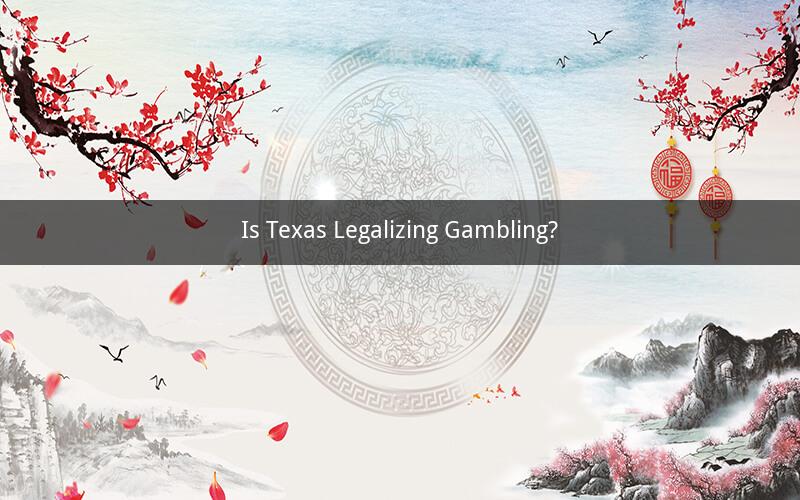
The debate over legalizing gambling in Texas has been a hot topic for years. As the state with the second-largest population in the United States, the potential economic impact of gambling legalization is significant. This article will explore the current status of gambling in Texas, the arguments for and against legalization, and the potential consequences of such a change.
Current Status of Gambling in Texas
Currently, gambling in Texas is heavily regulated and limited. The only form of legal gambling is the Texas Lottery, which includes scratch-off tickets, draw games, and multi-state games like Powerball and Mega Millions. Additionally, horse racing is legal in Texas, with several tracks across the state hosting races and offering pari-mutuel betting.
Arguments for Legalizing Gambling
Proponents of gambling legalization argue that it can bring numerous benefits to Texas, including:
1. Economic Growth: Legalized gambling could create thousands of jobs and generate significant revenue for the state. Casinos and racetracks would attract visitors from across the country, boosting local businesses and the economy.
2. Revenue for Education: The Texas Lottery has provided billions of dollars in funding for public education. Legalizing additional forms of gambling could increase revenue for schools and other state programs.
3. Competition: Legalizing gambling would provide competition for illegal gambling operations, which are prevalent in Texas. This could lead to increased safety and oversight.
Arguments against Legalizing Gambling
Opponents of gambling legalization raise concerns about the potential negative consequences, including:
1. Addiction: Legalized gambling could lead to an increase in problem gambling, which can have devastating effects on individuals and families.
2. Crime: Gambling operations can attract organized crime and increase crime rates in the communities where they are located.
3. Social Costs: The social costs of gambling, such as increased divorce rates and domestic violence, could also rise with the expansion of gambling in Texas.
Potential Consequences of Legalizing Gambling
If Texas legalizes gambling, it could have several consequences:
1. Job Creation: The addition of casinos, racetracks, and other gambling venues would create thousands of jobs in the state.
2. Increased Revenue: Texas could see a significant increase in revenue from gambling taxes, which could be used to fund education, health care, and other state programs.
3. Competition for Other Industries: The growth of the gambling industry could impact other entertainment and tourism sectors in Texas, such as hotels, restaurants, and theme parks.
Conclusion
The debate over legalizing gambling in Texas is complex and multifaceted. While proponents argue that it could bring economic benefits and increased revenue, opponents worry about the potential negative consequences. Ultimately, the decision to legalize gambling will depend on a careful balance of these factors.
Questions and Answers
1. What is the current legal status of gambling in Texas?
- The current legal status of gambling in Texas is limited to the Texas Lottery, horse racing, and bingo in certain areas.
2. What are the main arguments for legalizing gambling in Texas?
- The main arguments for legalizing gambling include economic growth, increased revenue for education, and competition for illegal gambling operations.
3. What are the main arguments against legalizing gambling in Texas?
- The main arguments against legalizing gambling include concerns about addiction, crime, and social costs.
4. How could legalizing gambling in Texas affect the economy?
- Legalizing gambling could create jobs, increase revenue, and attract visitors, potentially boosting the Texas economy.
5. What are some potential consequences of legalizing gambling in Texas?
- Potential consequences of legalizing gambling include job creation, increased revenue, competition for other industries, and potential negative social effects.